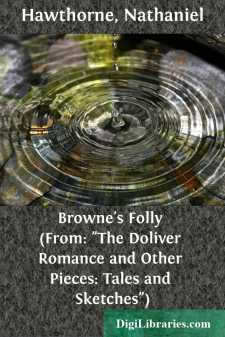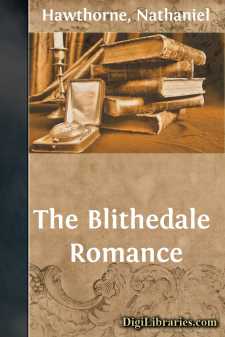Categories
- Antiques & Collectibles 13
- Architecture 36
- Art 48
- Bibles 22
- Biography & Autobiography 813
- Body, Mind & Spirit 142
- Business & Economics 28
- Children's Books 15
- Children's Fiction 12
- Computers 4
- Cooking 94
- Crafts & Hobbies 4
- Drama 346
- Education 46
- Family & Relationships 57
- Fiction 11829
- Games 19
- Gardening 17
- Health & Fitness 34
- History 1377
- House & Home 1
- Humor 147
- Juvenile Fiction 1873
- Juvenile Nonfiction 202
- Language Arts & Disciplines 88
- Law 16
- Literary Collections 686
- Literary Criticism 179
- Mathematics 13
- Medical 41
- Music 40
- Nature 179
- Non-Classifiable 1768
- Performing Arts 7
- Periodicals 1453
- Philosophy 64
- Photography 2
- Poetry 896
- Political Science 203
- Psychology 42
- Reference 154
- Religion 513
- Science 126
- Self-Help 84
- Social Science 81
- Sports & Recreation 34
- Study Aids 3
- Technology & Engineering 59
- Transportation 23
- Travel 463
- True Crime 29
Browne's Folly (From: "The Doliver Romance and Other Pieces: Tales and Sketches")
Description:
Excerpt
MY DEAR COUSIN:âI should be very glad to write a story, as you request, for the benefit of the Essex Institute, or for any other purpose that might be deemed desirable by my native townspeople. But it is now many years since the epoch of the "Twice-Told Tales," and the "Mosses from an Old Manse"; and my mind seems to have lost the plan and measure of those little narratives, in which it was once so unprofitably fertile. I can write no story, therefore; but (rather than be entirely wanting to the occasion) I will endeavor to describe a spot near Salem, on which it was once my purpose to locate such a dreamy fiction as you now demand of me.
It is no other than that conspicuous hill (I really know not whether it lies in Salem, Danvers, or Beverly) which used in my younger days to be known by the name of "Brown's Folly." This eminence is a long ridge rising out of the level country around, like a whale's back out of a calm sea, with the head and tail beneath the surface. Along its base ran a green and seldom-trodden lane, with which I was very familiar in my boyhood; and there was a little brook, which I remember to have dammed up till its overflow made a mimic ocean. When I last looked for this tiny streamlet, which was still rippling freshly through my memory, I found it strangely shrunken; a mere ditch indeed, and almost a dry one. But the green lane was still there, precisely as I remembered it; two wheel-tracks, and the beaten path of the horses' feet, and grassy strips between; the whole overshadowed by tall locust-trees, and the prevalent barberry-bushes, which are rooted so fondly into the recollections of every Essex man.
From this lane there is a steep ascent up the side of the hill, the ridge of which affords two views of very wide extent and variety. On one side is the ocean, and Salem and Beverly on its shores; on the other a rural scene, almost perfectly level, so that each man's metes and bounds can be traced out as on a map. The beholder takes in at a glance the estates on which different families have long been situated, and the houses where they have dwelt, and cherished their various interests, intermarrying, agreeing together, or quarrelling, going to live, annexing little bits of real estate, acting out their petty parts in life, and sleeping quietly under the sod at last. A man's individual affairs look not so very important, when we can climb high enough to get the idea of a complicated neighborhood.
But what made the hill particularly interesting to me, were the traces of an old and long-vanished edifice, midway on the curving ridge, and at its highest point. A pre-revolutionary magnate, the representative of a famous old Salem family, had here built himself a pleasure house, on a scale of magnificence, which, combined with its airy site and difficult approach, obtained for it and for the entire hill on which it stood, the traditionary title of "Browne's Folly." Whether a folly or no, the house was certainly an unfortunate one. While still in its glory, it was so tremendously shaken by the earthquake of 1755 that the owner dared no longer reside in it; and practically acknowledging that its ambitious site rendered it indeed a Folly, he proceeded to locate it onâhumbler ground. The great house actually took up its march along the declining ridge of the bill, and came safely to the bottom, where it stood till within the memory of men now alive.
The proprietor, meanwhile, had adhered to the Royalist side, and fled to England during the Revolution. The mansion was left under the care of Richard Derby (an ancestor of the present Derby family), who had a claim to the Browne property through his wife, but seems to have held the premises precisely as the refugee left them, for a long term of years, in the expectation of his eventual return....












